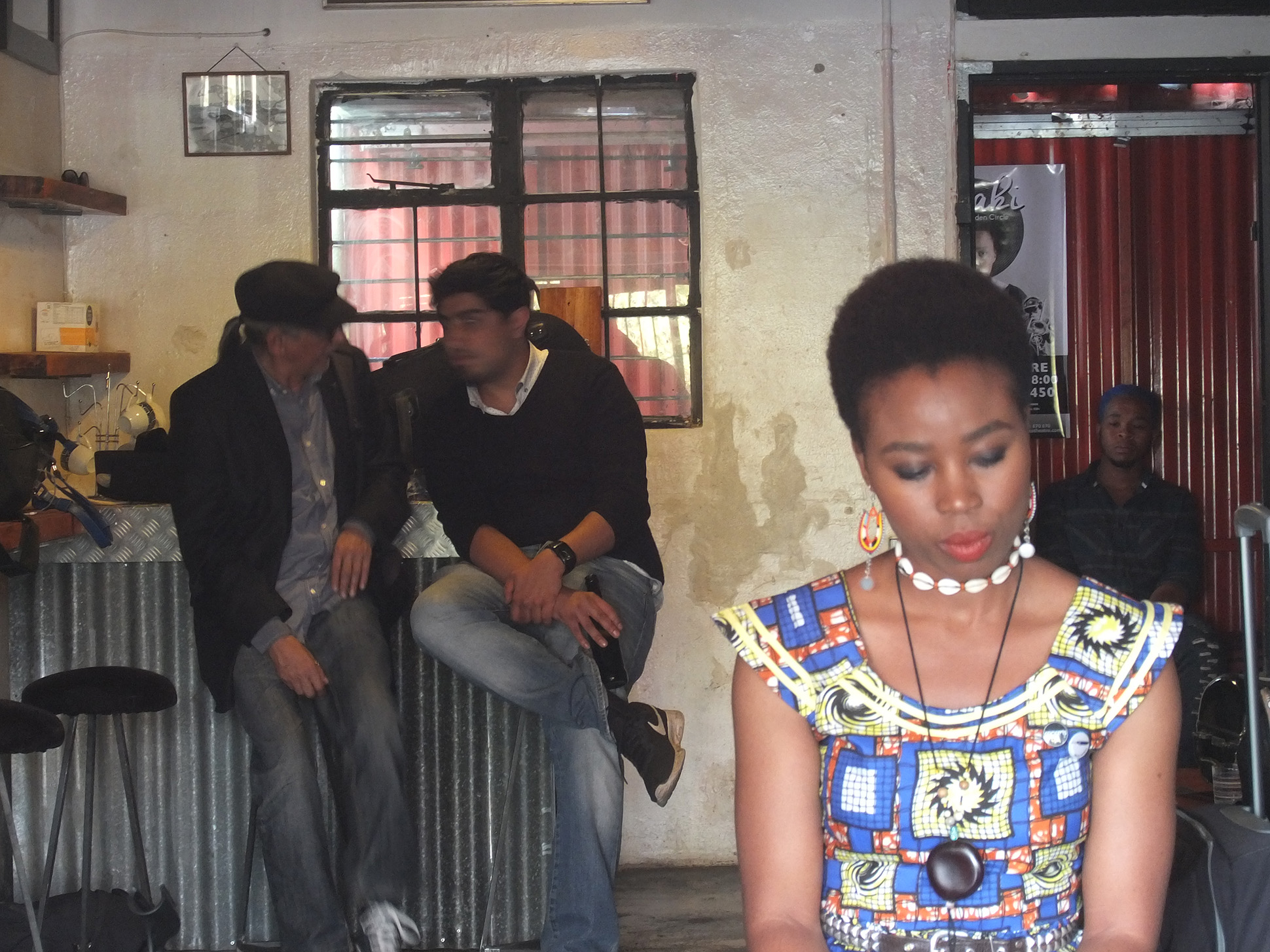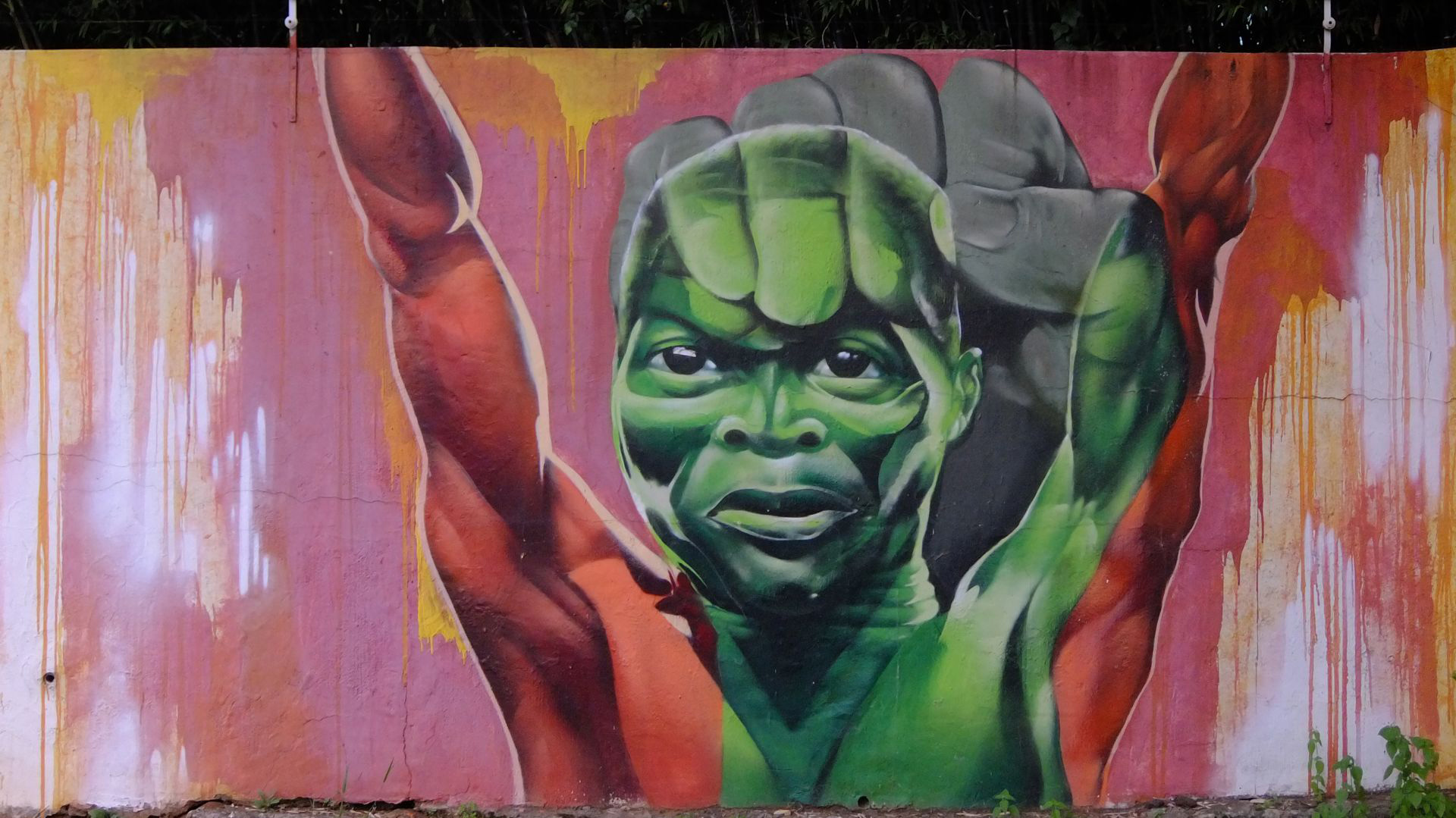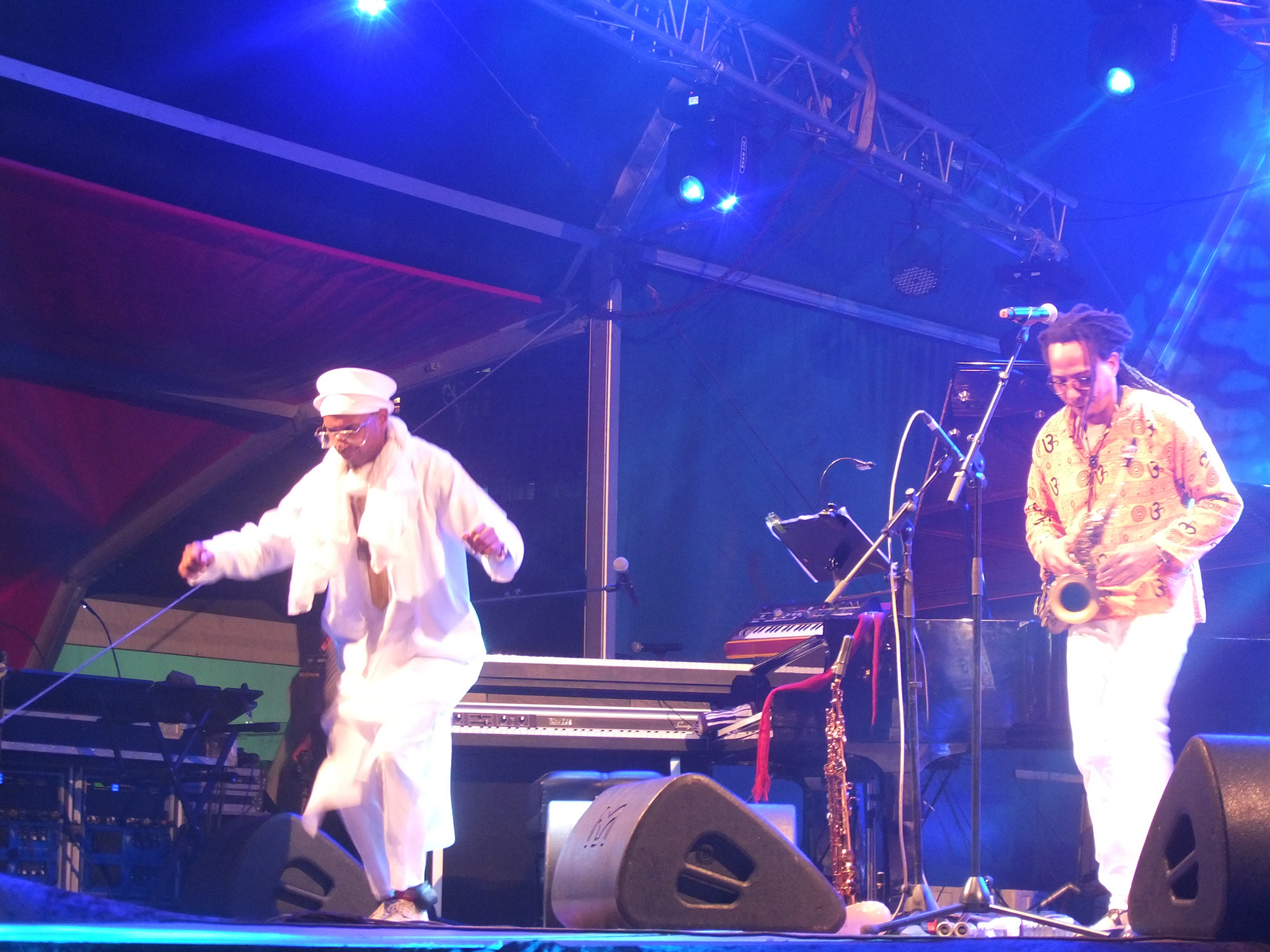House of Memory 2007 - 2017
House of Memory provided top of the range professional solutions to clients in the heritage, museums, exhibitions, public programming and tourism experiences sector For Africa and the World to become reputable leaders in heritage, exhibitions, tourism and public programming.
Freedom Park
For a very long while Vusi Mchunu was part of the development of a heritage site in Pretoria called Freedom Park, where he was chairperson of the council for the last three years.
Freedom Park was a major South African liberation project proposed by president Nelson Mandela and then supported by Mbeki. It sought to tell the entire heritage story of South Africa but highlighted the resistance and contribution towards freedom by different people. It was 13 years in the making. And includes the release of a book that tells the entire story of Freedom Park. It is an amazing book with different people contributing, architects, landscape designers, and great African spiritual leaders like Credo Mutwa, Mankomo, Mama Suku from Bakatla in North West. It is a fantastic archive inside African centric buildings and space.
Downtown Studios
At the Downtown studios museum he put up a permanent exhibition, to celebrate the contribution of Downtown studios, called a “glimpse of South African music.” It is not the full story, but it is a large part of the story. Downtown Music museum is a first for a significant memoralisation, preservation and presentation of South African music in any city or any rural area or town in this country. Music in South Africa has been one of the serious main fronts of maintaining the identity when the colonial and other forces really sort to eradicate and erase the cultures of the peoples. Music has been the most reliable depository of all those facets of life as experienced through the African lunar calendar of festivals from the first rains in August, Simela, the festival of Nomkulwane which is the rainbow goddess, the daughter of the creator; to the first fruits festival in January through to July - the year end. Around all traditional festivals is music. In the African system, language, music, poetry, it is one thing. Musicians are really special caste of people; you can hardly feel their presence. A museum invites the audience to get close to this special caste of people called musicians.
Samora Machel Museum
Vusi Mchunu was founder of the Samora Machel museum which commemorated the memory of a great African leader and warrior, President Samora Machel of Mozambique who died tragically with an airplane crash in 1987 in a place called Mbuzini, bordering Mozambique. There is a monument there and a museum there. , carrying the story of Mozambique and the transition through the Frelimo government up until Machel’s tragic end. Like the Samora Machel museum, the big question is who killed Samora Machel? It is a great story and there were a lot of lies around what happened.
It is normal for heritage practitioners to visit the graves of such a great spirit. There the practitioner will introduce him/herself - kneel there and speak to the person humbly. The heritage practitioner will describe to the deceased person that they are going to be very close to their spirit for the period of the investigation. When those personalities accept the introduction - they get up and they go with the heritage practitioners. With Samora I was so frustrated. And I felt he seemed to be very distant from his own story. But he surprised me. He came immediately and he showed me very clearly that he is aware. He is with us and he is going to assist us. That is why we cracked it. But we could not go around boasting about it, the perpetrators are alive and they are very powerful people. Also Samora made it a point. The top military called me and told me to stop this investigation because they have been told that the perpetrators are aware and they are busy tracking who we are. Because the only language they know is to eliminate.
In the investigation for the museum, Vusi Mchunu and the other heritage practitioners cracked the source of the whole plot and the people who actually killed him. However, as the perpetrators are still alive and as they are very powerful people, Vusi Mchunu was advised by top military to stop this investigation as they had been told that the perpetrators are aware and they were busy tracking the heritage practitioners. The only language the perpetrators know is to eliminate.
Bethel Heritage Precinct
Vusi Mchunu also did the Bethel heritage precinct, right inside the town of Bethel, Mpumulanga province. It incorporates a public park and then a statue of a great rural trade union leader called Gert Sibande. It is the first statue of an African leader in the entire province of Mpumulanga and it also has got a 500 seater pavilion for meetings and celebrations within the park. A few metres up the road is the statue of Nokthula Simelane who was a student in Swaziland but born and bred in Bethel. She vanished tragically, abducted by the apartheid security police as she was expected of working with the ANC. On the road still you will walk into a huge complex which used to be the police station, the magistrates court, the pass office, the autopsy rooms and the actual mortuary. That entire space has been transformed into a living museum telling the entire story of what in the 50's used to be known as the potato boycott movement relating to the slave conditions under which prisoners were subjected in the Bethel potato fields.
It is a bitter story but the museum transforms the story; including also stories of great journalists and luminaries like Ruth First and Mr Drum himself, Henry Nkumalo. Also incorporated in this project are the African knowledge systems especially around the area where the autopsy room and the mortuary is. There is a tradition amongst Africans; if the person dies in war or in unknown circumstances, or vanishes, his/her spirit is restless and s/he needs to be brought back to a space where s/he can come to terms with the way s/he departed from the world and also to come to terms with the fact that he will play another role as s/he is no longer alive. These processes are usually done by people who know. They use a branch of a tree called Ulamhlinkosi Impahla, which is a branch you use to go to the site where the actual tragic end happened, and communicate with the name and the personality of that person and take that person with the branch to the site where s/he can find rest. Three Impafa trees are planted outside the museum. And they are growing very well today just to address those young African males who perished in those terrible potato farms in Bethel.
The perpetrators are still alive. One of them, who was an old man, retired. He used to be a top cop, shoot people, kill people. It took so long and was so hard to get him until Vusi Mchunu got him to agree to talk. A film crew and sound came in from Johannesburg to record even though the grumpy, old man was cursing the guys filming in. The beautiful story is that one of his victims was still alive. So in the resulting film you see the perpetrator talking and you see the victim talking and the rest is for you to decide.
The Centenary of the ANC
At the centenary of the ANC. Vusi Mchunu planted 5 life size statues of ANC. They are of the anti-apartheid leaders including the fourth president of the ANC, Josiah Gumede and then the 5th president and the founder of the ANC, Dr Pixley Semene and then the two statues of the anti-apartheid lawyers, Mr Griffiths Mxenge and Mrs Victoria Mxenge, in the house in Umlazi where she was assassinated. And, a beautiful statue of the anti-apartheid cleric, Dennis Hurley who founded a school for the deaf called Kwatinta. The statue is right there in the school. Memorial pillars were also created and books were produced on the project. A PhD on Josiah Gumede was converted into a book.
Heritage Training in Kraaipan
Vusi Mchunu has conducted heritage training as an entry point into arts culture and tourism training. He did a beautiful project in a rural area called Kraaipan in North West province, about 100km's from Mafikeng where the Anglo Boer War happened. The research combined the story of the Barolong people who are in the area, Boratsidi, with post matric young people. The project was in collaboration with the University of Wits history department to develop a course, including historical theory, actual site visits, photography, visits to important education centres like the history department of the University of North West and engagement with Dr Mbembe, who is a great historian.
In Heritage training local languages are always prioritised and English is used as the language for the greater visitorship. In Kraaipan, because the kids are mostly Tswana speaking; most of the projects took place in Setswana language, at the villages and with old people who spoke in Setswana. The work is in Setswana was translated into English. The outcome was fantastic, including the release of a beautiful book and a graduation day for the kids, and their parents hosted by the munipality. The first batch of young people were taken up by museums as tour guides in the North West province.
Cato Rest civil museum
Vusi Mchunu has worked to tell the great story of the Khumalo conflict in Tokozo township which happened in the 90's. The conflict was part of the elections and post elections, between the ANC and Inkhata freedom party. It was the conflict of the hostel people, which was the IFP and the community which was ANC.
As part of a feasibility study for a museum in the township there, for five months Vusi Mchunu conducted focus groups. This included site visits and photography with the idea to work towards a Cato Rest civil museum in Ekhuruleni. A beautiful publication came out of that, an incredible work and today the museum has been realised. It was the first project we did with a private individual but he failed to work with the municipality that they could give him land, that he can do the museum. The project was done and documented and ready for the funding to come through.
Ekhuruleni
A lot of fantastic things happened in Ekhuruleni like Codessa, that was the new constitution and the change that came from it. As heritage practitioners, Vusi Mchunu and his team worked with the building industry professionals, structural engineers, electrical engineers, architects, landscape designers and did a full on feasibility study with drawings. A beautiful park that had water, a dam next to it with a fantastic design in Kempton Park was availed. The constitution process was led by Cyril Ramaphosa, and Rolf Meyer, and Ramaphosa called it the birth of a new nation. So from that came the idea of the birth of an actual birth, the ovary and the egg and so on. The building was an egg sitting on a nest ready to open. Included in that project was the release of a book.
A discussion with Vusi Mchunu
“In brief our experience and our work has been largely to marry our training because we are Western trained in terms of representation of history in terms of design and seeing things. But we work very hard to humble ourselves and learn from the African system people, the so called illiterates, the sangoma, the medicine man, nyanga, the elder and really get to listen to them and get guidance from them. We are very resolute to really speak the African vocabulary in our work. It was very important for us that the voice of the people can come through, unchained, unfettered, free. It is very important that the voice can come through. And also if there are different views, because we are very aural. Once you get into that space it is aural - as spoken - as in word and mouth. There are many versions, like the old pieces of what we have today, The Bible. There will be many versions of the life of the Christ. We wanted a possibility of presenting all those voices, challenging as it is.”
“Heritage is a mystery. If you subject yourself to the emotions, the passions, remembrances and the real voices of the people you are working on. It is indeed resurrecting of those people. Those people are great spirits. They will never die. Once through the heritage project you touch them, you work with them."
“It is usually the stories, the sensitive stories around the African oppression, resistance and liberation. This is the mystery of heritage.”
“Heritage work is a forensic investigation if you are serious about it. You get under the skin of this work because it deals with peoples lives, people who were erased from history. Now is the time for them to come through.”
“We inherited in this country a heritage landscape which is totally biased, totally apartheid outlooking, totally colonial outlooking, totally distorting, excluding, alienating our story; the story of the Africans. As advanced as we were in terms of the museum world in this country we were very primitive. Our work since '94 is to transform that landscape. We have developed a methodology from years of work in the transformation space. Our methodology unlike the people who have done the damage, is not afraid. We will never erase the colonial times, we will never destroy their statue, we will put them in a context. We will never erase. There are always versions to a story that enrich us, enrich our generations. Our work is in that space which is so restricted. To work so hard to get our voice as also part of the debates. The rest is for the next generation to take it further. At least we have laid the foundation for that.”







